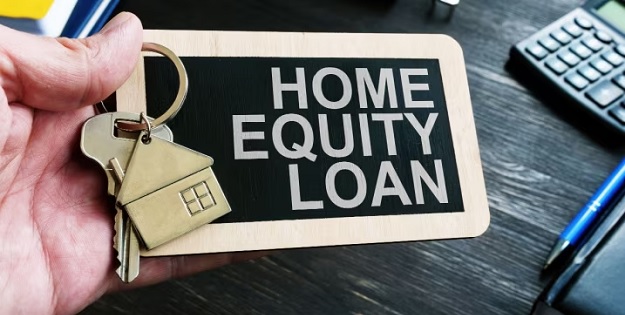Houses are becoming more and more expensive everyday, leading homebuyers and owners to find better options for financing the home investments in order to be able to afford them. While mortgage is the chosen path, there may be additional needs of the buyers which require more help. A home equity loan serves to meet these needs. But can a homeowner have a home equity loan and still sell their house? In this article we explore everything that you need to know about selling a house with home equity loans.
What Is Home Equity Loan
A home equity loan, commonly also referred to as a home equity line of credit is like a second mortgage on the house. Usually, a homeowner can opt for a home equity loan to get a more advantageous rate of interest for the loan, or to become eligible for interest tax deduction.
A home equity refers to the sum of money that the homeowner has invested in their house, at any given point of time. This sum is derived from how many mortgage payments the borrower has made, along with the latest value of the house in the market. Whether or not a homeowner has positive equity or not varies depending primarily on the prevailing market conditions.
For example, if the real-estate market has dropped, the value of the home that you have purchased will also drop. In such instances, the amount of equity that the homeowner possesses is derived from the payments of the principal mortgage amount that they have made, and not from the existing home value. However, your mortgage lender might arrange a formal property appraisal process to assess the exact value of equity that you have (in either case).
A home equity loan provides the borrower with a lump sum amount which they have requested for the property in question. It can be used for various purposes including home improvement projects or extensive repairs, to name a few.
Selling A House With Home Equity Loan
If you are looking to sell your house despite it having a home equity loan, it is entirely possible to do so. In fact, it is quite a common procedure which a lot of homeowners choose to proceed with in order to liquidate their property. When a homeowner chooses to sell their house on a home equity loan, they need to repay the remainder of the loan amount, for which they typically use the money they get from the sale of the house.
For borrowers who do not have ample funds to make the monthly payments, this is a suitable option.
In the majority of cases, this process goes on seamlessly, however, there can be potential issues that homeowners need to be vigilant about. Typically issues may arise with respect to a decrease in the value of the house on the market. Additionally, some lenders can impose penalties for early loan repayments or have policies which do not allow for it, in which case the homeowner might have to find a different solution. Alternatively, you can consult with your home equity loan lender to find a suitable path forward.
Decreased Home Value
The real-estate market keeps fluctuating, and while generally the value of property is always considered to go up, it can also fall at times in certain places due to a variety of factors. For instance, a neighborhood which seemed promising and up-and-coming at one point of time, may be plagued with some issue which goes on to impact its market value as a whole. If you have purchased a house in such a neighborhood, your house will lose value with the entire area.
In situations where the value of the home has decreased over time from when you purchased it, selling the house might not be enough to repay the loans that you have. When this happens, you will have to assess whether you are getting enough money to meet your needs or not. You can choose to sell the house and find another source of money to repay any extra amount which you are unable to make up through the sale. Or, you can choose not to sell the house and continue with the repayments as usual.
In some cases, where the value of the house has decreased and the borrower is at a disadvantage, some lenders can also adjust to a short sale. What this means is that the lender does not claim their right to receive the full amount back, and rather settles for an achievable amount. This flexibility can be extremely helpful for borrowers.
Early Payment Penalties
Early payment of a loan (including home equity loan) means that the borrower saves a significant amount of money on interest payments. This also means that the lender gets a lesser amount in interest payments. To avoid this and gain maximum interest for the loan, a lot of lenders impose an early payment penalty.
The objective of such a penalty is to dissuade borrowers from paying the loan early. Alternatively, some lenders may not entertain a request for early payment of the loan at all.
In either of these cases, the borrower can suffer losses as they would have to pay the entire interest amount as well, which they could easily have saved for themselves. In order to avoid such situations, it is advisable for the borrowers to choose a lender wisely, and clarify all such hypotheticals beforehand. This helps you draw your plans for the sale of the property with confidence and without any potential last minute hurdles from the lender’s end.
Conclusion
Selling a house which has a home equity loan going on is entirely possible and quite a routine practice by many homeowners. While in general there are no problems that homeowners face with regards to this, occasionally some issues may arise which may delay or prevent the homeowners from selling the house. However, these issues can be resolved by working with the lender, or avoided by choosing the right lender with suitable policies at the time of loan application.



